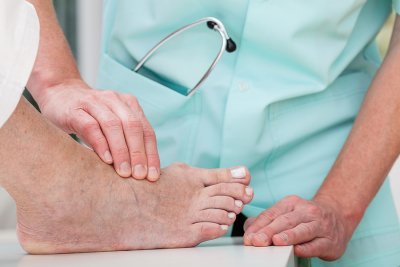Getting Ready for Your Bunionectomy
Bunions can be a source of ongoing pain and swelling that can affect your ability to walk and perform your daily routine. If you have a bunion, then your foot specialist may recommend that you undergo bunion removal. Continue reading to learn how to prepare for bunion surgery in Sugar Land.

Undergo Pre-Admission Testing
Before the day of your surgery, your doctor may have you do some pre-admission testing (PAT) to ensure that you are physically and medically fit for surgery. While the nature of these tests can vary, they usually involve the taking of blood samples. Non-invasive heart examinations, physical examinations, and chest x-rays are other examples of PAT.
Stop Nicotine Use
As with many other surgical procedures, you may be advised to quit smoking in the time leading up to your surgery and during your recovery. Nicotine, along with other chemicals contained in cigarettes, can increase your risk for experiencing problems after your bunionectomy. The use of nicotine can slow blood flow to the leg and potentially increase your risk of blood clots and deep vein thrombosis, impede the healing of soft tissue and bone at the surgical site, and increase the chances of infection after surgery. To help ensure the best results from your bunion removal, it’s best not to use any products that contain nicotine before the procedure. Discuss your options for quitting smoking with your surgeon or primary care physician.
Purchase Orthopedic Devices
To promote better healing, your surgeon may advise you to avoid putting weight on your foot after your bunionectomy. To help with this, you may be provided with a list of devices, such as crutches, shower chairs, or walkers, to purchase before and use after your surgery.
Stop Eating and Drinking
It’s important to have as little contents in your stomach at the time of your surgery as possible. For this reason, your doctor will tell you to stop eating and drinking at some point before your appointment, with midnight the night before being typical. Finally, your surgeon may have you avoid certain medications before your surgery.

